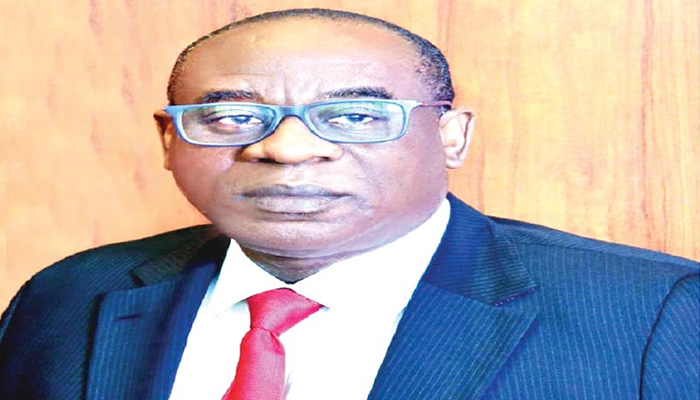
Despite economic challenges in the first six months of the year, a few companies exceeded expectations with their results. However, many others have been affected by the economic slowdown, Oluwakemi Abimbola reports
An analysis of the half-year reports of several listed companies on the Nigerian Exchange Limited reveals a mix of impressive earnings and significant losses amounting to billions of naira.
In the first six months of 2023, Nigerian businesses have had to deal with a number of macroeconomic headwinds, which had a considerable impact on their operations and bottom line.
At the end of the first quarter, several companies fingered a cash crunch, a fallout of the failed naira redesign policy of the Central Bank of Nigeria, which commenced in late 2022. However, the impact split into 2023 with many businesses and individuals battling a cash crunch.
One of the ways it affected businesses was that it increased their operating expenses, which include selling and distribution expenses as well as administrative and general expenses.
For instance, BUA Foods, which reported a profit after tax of N40.468bn at the end of the first quarter, saw its total operating expenses rise by almost four-fold from N2.23bn in Q1, 2022 to N8.9bn at the end of Q1, 2023.
Reacting, its Managing Director, Ayodele Abioye, said, “BUA Foods Plc continues to deliver strong performance across key financial metrics despite the business climate headwinds characterised in Q1 by the economic impact of the general elections, high food inflation, and shortage of cash in circulation following the currency redesign policy. We continue to leverage our unique strategic business model to minimize the impact.”
In a statement, the Manufacturers Association of Nigeria in March claimed that the cash crunch led to a 25 per cent drop in sales.
The operations of firms in the country were significantly impacted by the uncertainty and heightened security concerns that accompanied the 2023 general election.
With the inauguration of the new President, Bola Tinubu came fresh challenges for businesses. The President during his inaugural speech on May 29 announced the removal of fuel subsidy, which made petrol prices more than triple from N197 per litre to N617 per litre.
President Tinubu also revealed plans to harmonise the country’s multiple foreign exchange rates. And true to his promise, on June 14, the Central Bank of Nigeria announced that all the segments of the forex market have been collapsed into the Investors and Exporters window.
“Abolishment of segmentation. All segments are now collapsed into the Investors and Exporters (I&E) window. Applications for medicals, school fees, BTA/PTA, and SMEs would continue to be processed through deposit money banks,” a circular signed by CBN’s Director, Financial Markets Department, Angela Sere-Ejembi, read.
Some listed companies have been hit by the fallout of these government policies, recording losses running into billions of naira.
Airtel Nigeria Plc, whose second-quarter report was released on Thursday, blamed the harmonisation of the foreign exchange for its $151m loss.
The telecom company said, “Profit after tax was negative ($151m) driven largely by a foreign exchange loss of $471m recorded in finance cost before tax and $317m after tax because of the devaluation of the naira in the month of June 2023. This impact has been classified as a non-operating exceptional item.”
The financial institution, Ecobank Transnational Incorporated, reported profit before tax of $29m in the Nigerian market in the first half of 2023 compared with $16m in the first half of 2022, representing a growth of 77 per cent.
However, its operating expenses in Nigeria rose to $104m in the second quarter, rising by 10 per cent, driven mainly by consumer-price growth, which accelerated following removal of fuel subsidies and exchange rate reform.
Speaking on the results, the Chief Executive Officer of Ecobank Group, Jeremy Awori, fingered weak currencies as one of the factors that impacted the pan-African lender’s figures.
He said, “We achieved these results despite continued challenging macroeconomic conditions in the second quarter, with significant weaknesses in African currencies, high consumer prices and tepid economic growth.”
Another financial institution, FBN Holdings, reported N187.24bn as profit in the first half of 2023, marking a 231 per cent increase compared to N56.60bn recorded in 2022. This profit was on the back of interest income and fee and commission income.
However, the foreign exchange income trended towards the negative for the financial period as it was N98.42bn in the red.
Consumer goods manufacturing firm, Cadbury Nigeria Plc, in its Unaudited Interim Financial Information for the half year ended 30 June 2023 reported a N14.54bn loss in the first half of 2023, compared to the same period in 2022 when it posted N 2.34bn.
Its revenue during the period under review, however, increased by slightly more than a quarter to N35.61bn from N27.88bn in the prior period in 2022. Impacting the revenue was the cost of sales, which rose from N22.02bn as of June 2022 to N25.38bn.
While another consumer goods company, Unilever didn’t suffer a loss, its profits dipped by 17.11 per cent to N91.48m from N110.37m reported within the same period in 2022. During the first half of the year, Unilever’s revenue grew to N29.60bn from N23.25bn in H1 2022. However, its cost of sales also jumped by 67.13 per cent year-on-year to N27.107bn.
Guinness Nigeria Plc reported a N18.17bn loss in its financial reports for the period ended June 30, 2023. This marked a 216 per cent decline in its bottom line. This dip was caused by its net finance costs, which surged to N45.50bn from N225,899m as of June 2022.
Due to the loss, no dividend has been recommended by its board for approval at the forthcoming Annual General Meeting. Guinness Nigeria’s shareholders enjoyed a N15.64m dividend in 2022.
Speaking on the half-year reports of the listed companies, a financial analyst, Brain Essien of McBrain & Company, expressed doubts that the businesses would report significant growth given the challenges they had to deal with.
He said, “I think that most of the companies listed on the Nigerian exchange will take a dip. From what I see of the market, their fundamentals do not support their pricing. As a lot of them begin to release their financials, we will see some dips.
“Financial institutions might fare a little better, but I’m waiting to see what gains, especially the insurance companies that are flush with cash and looking for where to invest (will make). Across the board, I don’t think there would be any significant financial growth. There might be a few outliers; a few sectors like banking can more easily pass along costs to customers.
“Again banks might fare better. The economy is weak for now and we are still awaiting more results from companies to have a clearer picture. Banks will do better, as against consumer goods. Oil companies have also done well but until a lot of them get their licenses to import fuel directly. We watch.”
The Chief Responsibility Officer of Peculiar Innovative Consulting, Segun Aremu, maintained an optimistic outlook that businesses would thrive despite the headwinds.
“So far, so good, I think the way they have been able to weather the storm is impressive. Some of them have been able to create other business lines to shore up their revenue. Also, because of the forex rates unification, the firms will declare an increase in the value of their assets. Many of them now work remotely, meaning their operational cost will be reduced. So, I expect to see more profits reported in the half year,” said the CRO of the portfolio management firm.
For the Chief Executive Officer of Airtel Africa, Olusegun Ogunsanya, the Nigerian market is of interest to the telco, despite the loss that it had reported due to the floating of the local currency. Nigeria is Airtel Africa’s largest market. He reiterated this stance at the company’s investors’ call on Thursday.
In the half-year report, Ogunsanya said, “Despite the strong operating performance, our results have been impacted by foreign exchange headwinds. This quarter saw the announcement of the change to the FX market in Nigeria, which resulted in significant naira devaluation.”
Ogunsanya, however, said that the move was a welcome one as it would have a positive impact on the telco’s mid-to long-term business operations.
“We have welcomed this reform as very positive for the medium and long-term development of our business in Nigeria, our largest market. The country offers significant untapped growth potential, underpinned by highly attractive fundamentals. This has supported and sustained a strong operating performance which has seen a five-year revenue and EBITDA CAGR of 23.5 per cent and 27.3 per cent in constant currency, respectively.
“We expect the FX reforms to improve liquidity over time, thereby, alleviating the challenges faced by international businesses over the last few years associated with accessing US dollars and, thus hindering accelerated growth.
“However, in the reporting period, the devaluation has had a material impact on our results. Over the last few years, we have actively reduced our FX exposure across the group, and this will continue to be a focus area in the future to limit the impact of any future devaluation.”
Meanwhile, the acting Governor of the CBN, Folashodun Shonubi, at the end of the MPC meeting stated that the apex bank was working towards making the forex market more efficient and effective in the face of high demand for dollars.
Shonubi said, “The market needs to find its level. There is pent-up demand which the market cannot cater to. Once we clear this demand, the volatility will normalise. We have started intervening, and we would continue to intervene until the market gets to our level.”
As of Thursday, the naira appreciated against the dollar by 3.85 per cent to close trading at 768.60 after opening at 780.33/dollar.





